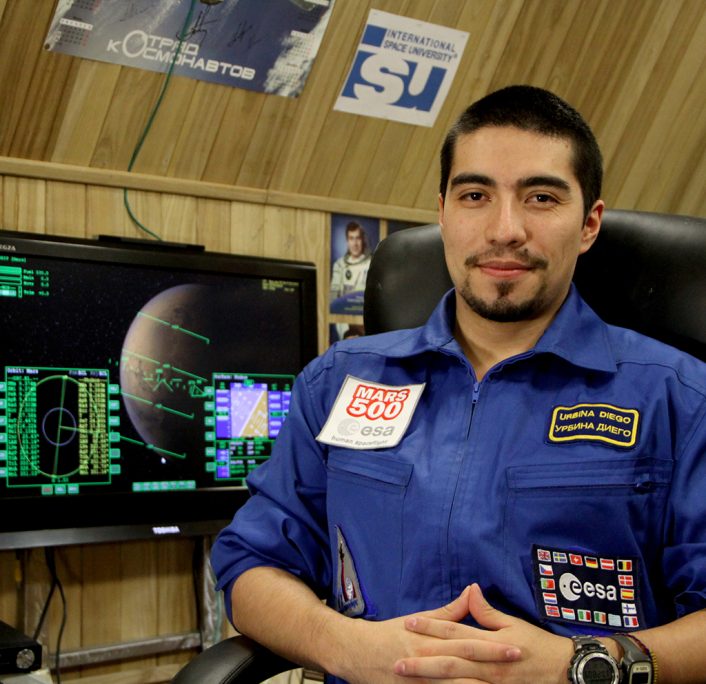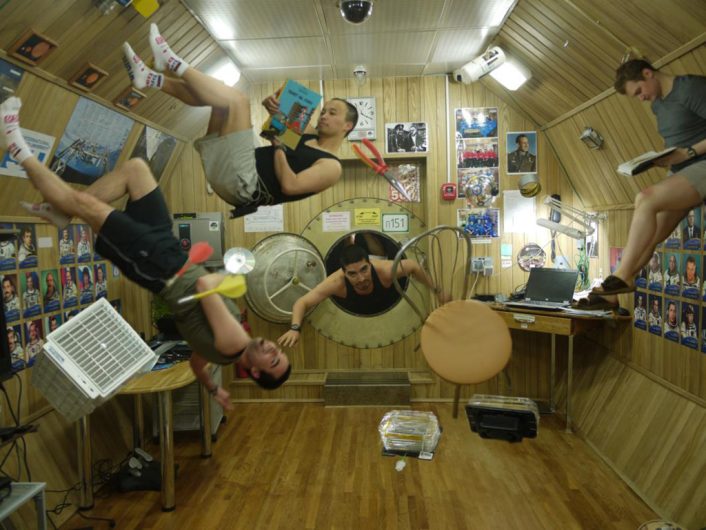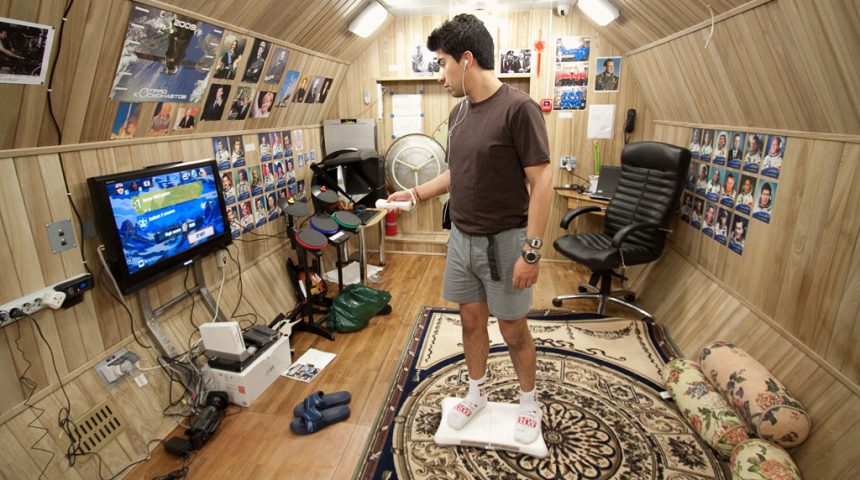From MARS-500 mission to COVID-19 restrictive measures: advices for facing quarantine and isolation.
Diego Urbina is an engineer who took part in an experiment conducted on the ground to simulate conditions of human isolation that could be faced in a future expedition to the planet Mars.
From his home in Brussels, where he has been confined for a week by the Coronavirus pandemic, Urbina provides some tips to resist these days’ “imprisonment”. Like millions of citizens around the world, Diego also lives with concern the current situation and tries to adapt his behavior to the new scenario created by COVID-19.
But Diego has a significant advantage: in 2010, along with five colleagues from the European Space Agency (ESA), he took part in the experimental mission MARS-500, a project that simulated a trip to Mars in which they stayed for 520 days inside a special complex (located on the Institute of Biomedical Problems’ site in Moscow), completely isolated from the outside world.

Here is the testimony he gave to the journalist Antonio Martinéz Ron, from Vozpópuli media outlet.
“It’s like a deja-vu, although today’s situation is clearly different, because this coronavirus is no longer a simulation. I believe that my experience during the MARS-500 mission can serve to give some advice on how to better organize and use our daily time,” Urbina explains.
Task diversification.
“First we must be aware that now we will have a certain period of time at our disposal, which we had previously occupied in social activities (work, hobbies, sports). It can be heavy, but on the other hand we must see the benefit: we can take advantage of this time to study and learn new things.
In our case, our 6-crew member team of MARS-500 didn’t have an internet connection and we could communicate externally only by email.
We only had books and few things, so that once our planned activities are finished we have 8 hours free each day. So I started studying Russian, to better communicate with my mission mates. And I also learned to draw; in the end I made some drawings and that made me very happy. These activities helped me to keep my mind more active, and a not falling into a spiral of laziness that caused damage in my daily activities, where we also simulated stressful situation, as a real space mission.
We read a lot: during year of MARS-500 mission I read about 30 books. Currently, however, in my daily life I have very little time to read. Remembering that period, I must admit that I miss having all that available time.”
Timetable organization.
According to Diego Urbina, it’s very important to organize the hours, so as not to interrupt the biological rhythms of the human body.
“In our case, we had no chance of being exposed to the sun. The lack of light alters the heart rhythms, so we were exposed to a special blue light.
It also altered the metabolism, for which we were forced to take vitamin D. That’s why I recommend you take advantage of the daylight hours, perhaps by spending time near the windows. Since we are entering the months with more light of the year, this should not be a big problem.
It’s also important not to alter our sleep patterns. We have to set very regular times, to avoid getting up too late and doing nothing all morning, as it can negatively affect our sleep patterns. In the case of our MARS-500 project, we were trying various ways to organize daily activities.
For example, dealing with the cleaning activities, we understood that the best way was to do them one day a week, all together, at the same time, so it was also fun and broke the routine. In addition to doing new things every day, it’s also important to distribute the tasks, and at the same time alternate them.”
Do exercise.
“For any space mission, physical exercise is mandatory, because in microgravity conditions the muscle tissue deteriorates very quickly if there is no physical activity. For people who are home these days for the COVID-19 emergency, this is a key factor. Here in Brussels jogging is allowed, but in places like Italy where this alternative doesn’t exist it’s possible to do many exercises in limited spaces, such as the living room at home.
If this current situation seems overwhelming to you, it may perhaps comfort you to know that during the simulated mission we faced additional difficulties that made it even more complicated: we had to take urine samples every day to keep our values in check; we didn’t have services such as internet connection or telephone (which now we take for granted); while we simulated the communications that will be made when we go to Mars we couldn’t speak directly to anyone else besides ourselves; and we haven’t seen sunlight for many months.”
Food.
“Our crew of the MARS-500 mission were alternately given some menus, always taking care that it was a healthy and varied diet. After eight months, however, we got a little bored with the food cycle. I therefore recommend changing dishes as much as possible. It’s also very important to limit the goodies, and don’t eat sweets every day, even if it’s tempting.
The positive side of the isolation period is that you don’t have such easy access to ‘junk food’ and that you can cook at home. In this way you have the opportunity to see what we are about to eat, know its nutritional value, and balance it well so as to be healthier after isolation.”
Psychological conflicts.
“In space missions, like a Mars trip, the possibility of conflicts between people is one of the greatest risks; which in a situation like the one we are living now can become relevant. We must learn to have a special patience. It’s quite complicated to manage conflicts, because there can be many different variables.
Our crew of the MARS-500 mission have been facilitated, because ESA psychologists had previously excluded potentially problematic people during selection phase. The technique we used during the 520 day isolation was not necessarily to sit around a table and talk to each other directly; when there was some friction, we tried to address issues less explicitly, doing nice things for each other. It’s an easy way to act, without the need to impose or criticize, to get everyone back in a good mood. In real life these days you have to be very tolerant, and understand the other person’s needs. We will probably be locked up for many days: there is no point in being in a bad mood with someone for the rest of the time.”
Conclusions.
“When the simulation of the MARS-500 project was over, when we came out of isolation after having been so long without seeing anyone, without even seeing the sun, nature and animals, it was a very positive shock. We were able to see all those normal things again.
Even the simple sight of a tree was a marvel. The first time we saw the sun rise, heard a dog bark or looked after a child, it was an emotion.
Now it will be a little less intense, but for all of us it will still be a good opportunity to appreciate all the usual things we took for granted every day.
It certainly will be like this when this coronavirus emergency is overcome.”

A special thank you to Emiliano Guerra for translating the interview and to Antonio Martinéz Ron for allowing us to publish part of his article. Make sure you follow ESA MARS-500 crew member Diego Urbina on Facebook here and Twitter here.









